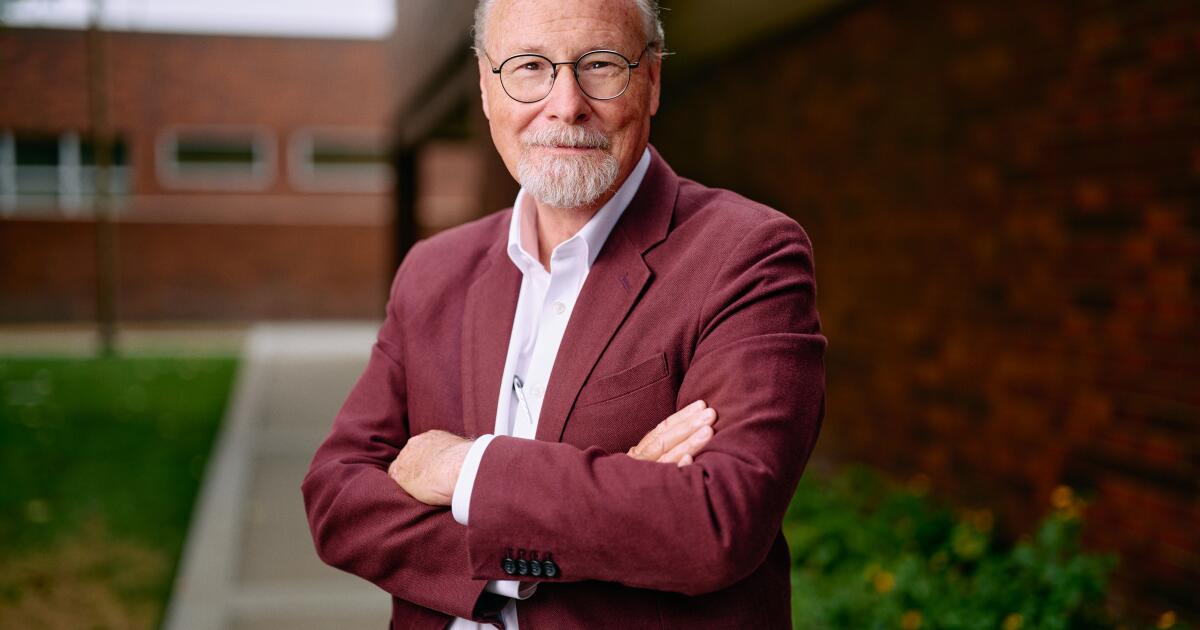WASHINGTON (AP) — President Donald Trump was telling a Rose Garden audience about his efforts to quell violence in the nation's capital when, as if on cue, his words were drowned out by the wailing sirens of passing vehicles.
“Listen to the beauty of that sound,” Trump said, grinning, before adding. “These are politically incorrect sirens.”
The moment, during a somber ceremony to honor conservative activist Charlie Kirk with the Presidential Medal of Freedom, illustrated how Trump's commitment to law and order at any cost has become a central element of his second term.
He sent troops into heavily Democratic cities and ordered federal officials, often with their faces covered by masks, to round up people living in the country illegally. He suggested that U.S. urban areas could become military “training grounds” and considered invoking the Insurrection Act to prevent political opponents from using the courts to thwart his plans.
Now, as Trump enters his second term, he has embraced the tough-on-crime approach he has always embraced but failed to win over the skeptics who often curbed his most extreme instincts during his first four years in office. In the process, his administration has sometimes flouted law enforcement standards, and critics say Trump has weaponized the Justice Department, using it to prosecute political opponents.
On Wednesday, he spoke about the results of Operation Summer Heat in the Oval Office. Trump said that, accompanied by FBI Director Kash Patel and Attorney General Pam Bondi, the FBI has made more than 8,000 arrests.
Trump said he talked about crime during his re-election campaign last year but never expected it to be the focus of his second term.
“It’s like a passion for me now,” he said, and that his actions were “many, many steps above” what he promised and “we’re just at the beginning.”
In some ways, it's a complete realization of the mindset that Trump has had since his early days as a real estate mogul, during the rough days of New York in the 1970s and '80s, when crime was rampant and the city's residents demanded repression.
Trump's efforts have drawn resistance from local leaders. His plans to send soldiers to Chicago and Portland, Oregon, have so far been hampered by legal problems. He said he was confident he would win the appeal, but did not rule out using the Insurrection Act as a workaround if necessary.
But elsewhere his actions dramatically changed daily life. Earlier this year, he took control of the California National Guard in response to protests against immigration raids in Los Angeles and sent the National Guard to Washington, D.C., and Memphis, Tennessee.
Trump has also contemplated taking similar action in Baltimore, New Orleans and New York, and has also threatened Boston, suggesting that World Cup games due to be played in nearby Foxboro next year could be moved if law enforcement is not stepped up.
“Bring back our police”
Trump's commitment to taking the toughest line possible against accused criminals, whether guilty or not, became a public issue more than 30 years ago. He heightened racial tensions by calling for the execution of the Central Park Five, a group of black and Latino teenagers who were wrongly convicted of rape in 1989.
Trump ran full-page ads in the newspaper with the headlines: “Bring back the death penalty. Bring back our police!” Those convictions were overturned in 2002 after evidence emerged that a serial rapist was involved in the crime. Today, the case is remembered by activists as evidence that the criminal justice system is biased against defendants of color.
“It's the same spirit that's at work now,” said the Rev. J. Lawrence Turner of Mississippi Boulevard Christian Church in Memphis. Turner said Trump has “demonized” and “targeted” Memphis, which is 62% African American and has a Black mayor and county supervisor.
Trump “seems to be committed to treating us the way he has treated other people of color throughout his first term and probably, I would say, throughout his entire public life,” Turner said. “We have released this president for a second term.”
Flirting in the first year
Trump touched on some of the same political themes in his first term during protests against racism and police brutality sparked by the killing of George Floyd in 2020, when he sent troops to the streets of Washington and Portland. But his advisers at the time strongly opposed many of his calls for greater use of the military to quell unrest.
Trump's former defense secretary, Mark Esper, later told CBS's “60 Minutes” that Trump asked during protests whether the National Guard could be tougher on protesters. “Can't you just shoot them? Just shoot them in the legs or something,” Esper said, recalling Trump's words.
However, Trump's signature bipartisan achievement in his first term was a 2018 criminal justice reform measure aimed at reducing the federal prison population and eliminating sentencing disparities after lobbying by lawyers including Kim Kardashian.
However, during the 2024 Republican primaries, Trump came under attack from the right for these policies, and he rarely spoke about his criminal justice reform bill during the campaign. Instead, he drew applause with calls for the death penalty for drug dealers and those who kill police officers, and opposed no-cash bail and other measures aimed at eliminating systemic bias in the justice system.
“We're going to save all our cities”
Trump now sees getting tougher on crime as a winning policy issue that only gets stronger for him the more he pushes.
“We're going to save all our cities and make them virtually crime-free,” he said Wednesday.
The shift also reflects the fact that Trump is no longer saddled with chiefs of staff, generals and others who felt it was their duty to curb Trump's most extreme impulses and have long since been replaced by loyalists.
“This time he has people around him who don't just support what he's doing, they encourage him,” said Patrick J. Eddington, a senior fellow at the libertarian Cato Institute. “It’s absolutely terrible that all of this is happening.”
Politically, Trump's tough-on-crime approach has advantages for his party heading into next year's midterm elections. A recent poll from The Associated Press-NORC Center for Public Affairs Research found that the administration's tough-on-crime approach has become one of Trump's top concerns amid frustration over his approach to the economy and immigration.
A large majority of Americans, 81%, say crime is a “major problem” in major cities, although statistics show violent crime has declined across the country since a pandemic-era surge.
“Make all Americans safer”
The White House rejects suggestions that Trump's anti-crime measures have anything to do with race. It says the National Guard is used in different cities for different reasons.
Washington is an anti-crime initiative that Republican state leaders in Tennessee have asked to replicate in Memphis, the report claims. In Portland and Chicago, as previously in Los Angeles, the goal is to protect federal authorities working on priorities such as immigration enforcement.
“The president's bold actions in cities across the country are making all Americans safer,” White House spokeswoman Abigail Jackson said, calling Trump's actions a fulfillment of a campaign promise.
Still, deploying troops to cities gives Trump an opportunity to portray Democratic opponents as soft on crime while exaggerating—often in apocalyptic terms—how bad the problem really is. He then exaggerates the results of his repression.
He spent weeks suggesting that Portland was “on fire” and declared of Washington, “When I came here, this place was a raging hellhole.” Now Trump is suggesting that crime in Washington has dropped to zero, which is also not true.
Maya Wiley, president and CEO of the Leadership Conference on Civil and Human Rights, said the administration's efforts are a continuation of the Trump brand, which she described as “overtly using race to foment division, consolidate the base and use it to usurp power that the president does not have or should not be seen to have.”
Indeed, Trump now regularly speaks of criminals as being beyond redemption.
“They’re sick,” he said recently, “and we’re taking them out.”
___
Colvin reported from New York.








